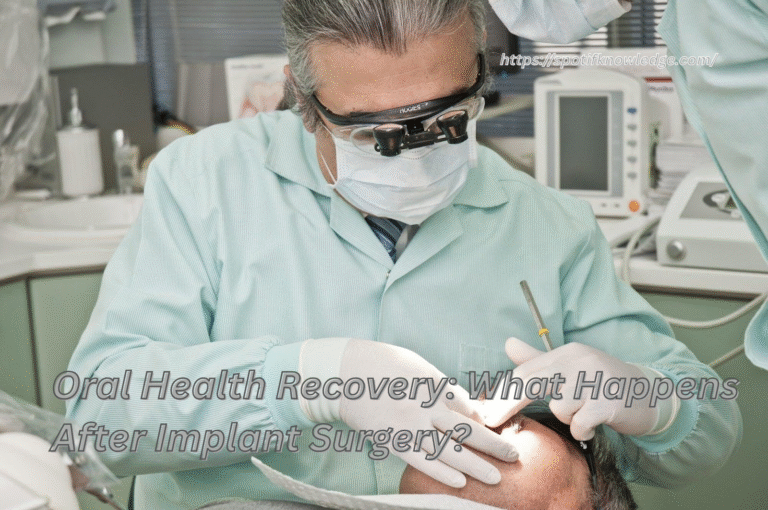Dental implant surgery is a big step toward a better smile and stronger teeth. While the surgery itself is important, what happens afterward matters just as much. Knowing what to expect during recovery can help you heal faster and avoid problems.
This guide explains the healing process and how to take care of your mouth after the procedure.
The First 24 Hours After Surgery
Right after implant surgery, rest is very important. You may experience mild swelling, bleeding, or soreness. These symptoms are normal and should begin to ease within a day or two. Your dentist will likely ask you to bite gently on the gauze to control bleeding, apply ice packs to reduce swelling, avoid hot drinks or spicy foods, and rest and avoid physical activity.
Pain can usually be managed with over-the-counter medicine unless your dentist prescribes something stronger.
Managing Pain and Swelling
Swelling often reaches its peak around the second or third day. To ease discomfort, keep using cold compresses in the first 48 hours, sleep with your head raised on pillows, and stick to soft foods like soup, yogurt, or mashed potatoes.
If swelling or pain increases instead of getting better, contact your dental office. This could be a sign of infection or another issue that needs quick attention.
Eating and Drinking Safely
For the first few days, your mouth will be sensitive. Eating soft, cool, and non-acidic foods will help avoid irritation. Here are some helpful tips: don’t use straws, as suction can disturb healing, avoid crunchy or hard foods that may hit the implant site, and drink plenty of water to stay hydrated.
Following your dentist’s food recommendations will help keep your implant safe while your gums and bone begin to heal.
Keeping Your Mouth Clean
Keeping your mouth clean is key to a smooth recovery. Even though brushing near the surgical area may be difficult at first, you should still brush and floss the rest of your mouth.
Your dentist may give you a special mouth rinse or tell you to rinse with warm salt water a few times a day. Avoid using strong mouthwashes or alcohol-based products until your dentist says it’s okay.
When Can You Return to Normal Activities
Most people can go back to light activities within a day or two. However, if your job involves heavy lifting or intense movement, you may need more time off. Always follow your dentist’s advice about returning to work, school, or exercise.
Long-Term Healing and Follow-Up
After the initial recovery period, your jawbone will start bonding with the implant in a process called osseointegration. This stage can take several months. It’s a slow but important part of getting strong, lasting dental implants.
During this time, you may have follow-up visits so the dentist can check your progress. Once healing is complete, you’ll return to get the final crown or bridge placed.
Possible Complications to Watch For
While implant surgery is generally safe, it’s good to know the signs of problems. Call your dentist if you notice severe or growing pain, fever or chills, swelling that won’t go down, and pus or a bad smell around the implant site.
Quick action can prevent a small issue from turning into a big one.
Keep Your Oral Health Strong
Recovery is just one step toward lasting dental health. Always follow your dentist’s instructions, attend follow-up appointments, and keep up with regular brushing and flossing. If you’re thinking about dental implants or have questions about recovery, talk to your dental professional today for personalized advice.
Looking for other informative articles? Check out the rest of our website today!

